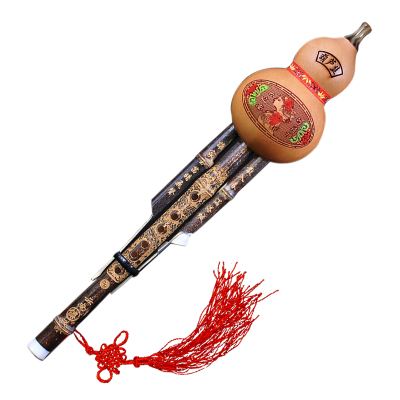How to play Hulusi and Bau's portamento
In the performance of Hulusi and Bawu, portamento plays a major role in making the transition between sounds and sounds, so as to achieve a mellow, beautiful, smooth and rich national style, especially the application of portamento in the performance of Dai style music is indispensable. of.

Portamento can be divided into portamento and portamento. First of all, I will explain the performance of the portamento. The portamento is marked with an inverse parabola. The portamento slides from the bass to the treble. The method of playing is to move the finger from the bass to the treble. To play the portamento, we only need to remember one sentence. Direct lift changes to wipe lift, and the effect of portamento appears naturally.
The glissando is opposite to the upward glide. From the point of view of the symbol, it is identified by a positive parabola. From the point of view of performance, it slides from the treble to the bass. The off becomes a gradual off, and the glide sound appears naturally.
Hulusi and Bawu are embellished with ascending and descending notes, which make the performance of the music more charming and distinctive. From a microscopic point of view, in the performance of adagio, almost every note adopts the technique of portamento, the difference lies in the length of time it takes. An important factor in determining whether the music is beautiful or not.
The more difficult part of the portamento is the portamento that exceeds the fourth range, which requires close coordination of the fingers and requires a higher level of coordination and requires more practice.
 渝公网安备 50010702504639号
渝公网安备 50010702504639号